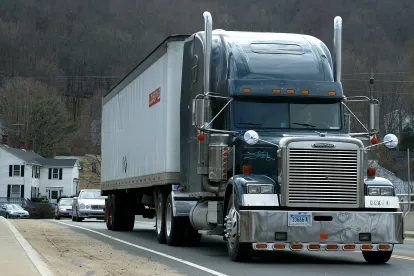As businesses throughout the State of California continue to grapple with the potential implications of AB5, a new law designed to make it more difficult for companies to treat workers as independent contractors, the California Trucking Association (“CTA”) is taking legal action.
As we previously wrote, AB5 codified and expanded the “ABC test” adopted by the California Supreme Court in Dynamex Operations West, Inc. v. Superior Court for determining whether workers in California should be classified as employees or as independent contractors.
To satisfy the ABC test, the hiring entity must demonstrate that:
- the worker is free from the control and direction of the hiring entity in connection with the performance of the work, both under the contract for the performance of the work and in fact; and
- the worker performs work that is outside the usual course of the hiring entity’s business; and
- the worker is customarily engaged in an independently established trade, occupation, or business of the same nature as the work performed.
In an amended complaint filed on November 12, 2019 in the U.S. District Court for the Southern District of California, CTA seeks declaratory and injunctive relief that would bar the State of California from applying the ABC test to the trucking industry.
Among other things, CTA seeks a ruling that the “ABC test,” as applied to the trucking industry, is preempted by the Federal Aviation Administration Authorization Act of 1994 (the “FAAAA”). And it seeks an injunction prohibiting the Attorney General and California state agencies from attempting to enforce the “B” prong of the test.
CTA asserts that the FAAA preempts the “B” prong because it will effectively operate as a de facto prohibition on motor carriers contracting with independent owner-operators, and will therefore directly impact motor carriers’ services, routes, and prices, in contravention of the FAAA’s preemption provision.
CTA further contends that the test imposes an impermissible burden on interstate commerce, in violation of the Commerce Clause of the U.S. Constitution. CTA asserts that the test would deprive motor carriers of the right to engage in the interstate transportation of property free of unreasonable burdens, as motor carriers would be precluded from contracting with a single owner-operator to transport an interstate load that originates or terminates in California. Instead, motor carriers would be forced to hire an employee driver to perform the leg of the trip that takes place in California.
The litigation is still in its early stages. However, given the fact that AB5 will go into effect on January 1, 2020, trucking businesses with operations in California should actively monitor developments in this case, and other potential challenges to AB5.



 />i
/>i

